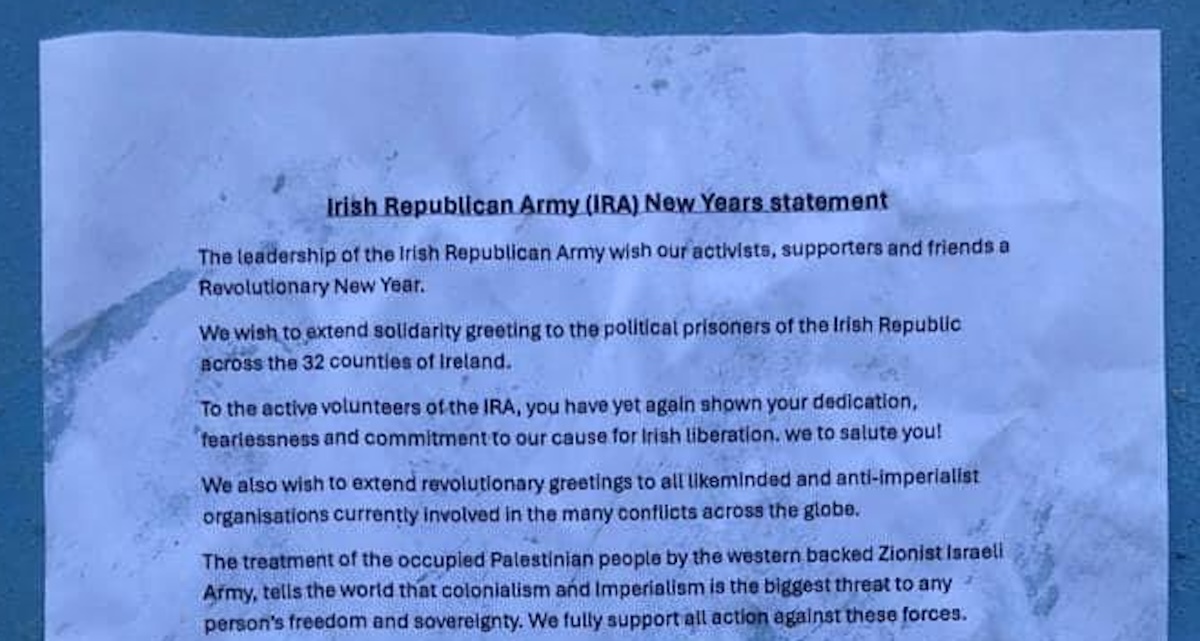
The New IRA has said it will continue to target the British Crown Forces in a statement which appeared on walls in Dublin on Monday.
In its New Year statement, the group said it retained the ability to strike against British forces “where and when we see fit”.
“The IRA today reiterates its fight for Irish independence, in all forms that that might take,” it said.
“We have shown in the past 12 months that we still have the volunteers and the capability to target members of the crown forces where and when we see fit, we will continue to do so.”
The statement also offered support for “all actions” against colonialism and imperialism and condemned the “treatment of the occupied Palestinian people by the western backed Zionist Israeli army”.
The message also referred to “the revival of republican commemorative events”, but added: ‘We would like to remind people that our fallen comrades did not give their lives to be commemorated.
“Commemorations will not bring us one step closer to a united Ireland, and we would encourage anyone looking to honour our fallen comrades to do so by joining the IRA and fight for the same cause for which they died.”
By contrast, in a press statement for the New Year, Sinn Féin leader Mary Lou McDonald emphasised the possibility of peaceful reunification. She called for steps to be taken towards a unity referendum, otherwise known as a border poll.
She said her party is aiming to be in government in Ireland, both north and south of the border, in 2024.
She said housing would be “the number one priority” of a Sinn Féin government but also called for “step change in the north”, and urged the DUP to re-enter devolved government at Stormont.
She also called for the creation of a Citizens’ Assembly to advance the reunification process.
“2024 needs to be the year when an Irish government begins to plan for Irish re-unification, beginning with the establishment of a Citizens’ Assembly so that the conversation can develop and preparations can begin,” she said.
And in an interview with the PA news agency, Ms McDonald said that, if her party comes out on top following the next general election, it would use its mandate to urge the London government to spell out the criteria for determining when a border poll must be held.
Under the terms of the Good Friday Agreement, the British Direct Ruler must call a border poll if it appears likely that a majority of those voting would back unity.
A date for a border poll has still not been set, even though successive elections have returned more candidates who support Irish unity than those who oppose it.
Asked if a vote on constitutional change could happen within the lifetime of the next government in Dublin, Ms McDonald said: “It could be. But it would certainly require a level of diligence and work.
“One thing for sure is, it will only happen if you have a government that’s actually serious about the proposition and actually fully understands what it can mean for Ireland, and who is ambitious to create that space and those opportunities for our people.”
![[Irish Republican News]](https://republican-news.org/graphics/title_gifs/rn.gif)
![[Irish Republican News]](https://republican-news.org/graphics/title_gifs/harp.gif)

